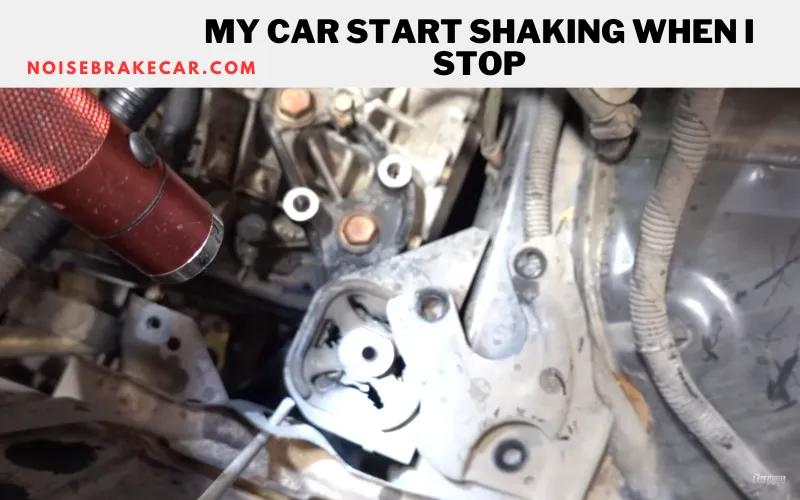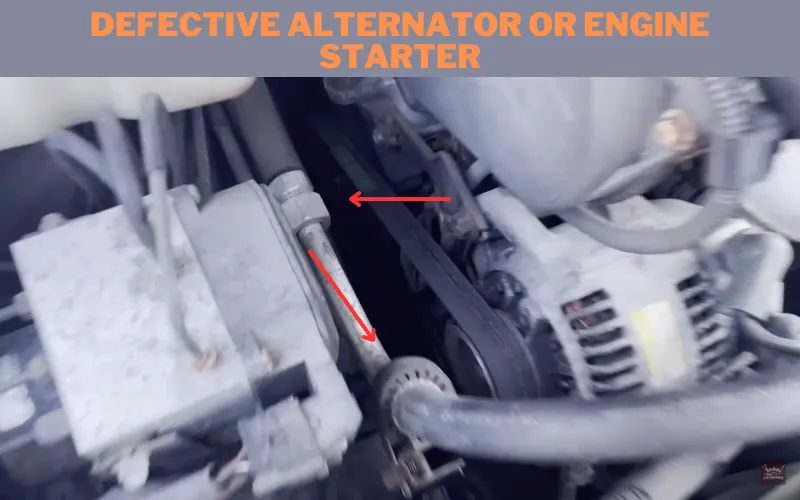If your car starts to rattle at idle, you may be concerned that something is seriously wrong. Drivers have spent time learning how their cars sound and feel when they start the engine.
They wait for the hum or sound of the engine. Sometimes the problem may be minor, like a soft part or a faulty motor. It is important to investigate these issues as soon as possible it could indicate a serious problem.
Let’s look at some of the reasons below to find out why the car is shaking.
Car Shakes and vibrates at Idle What are common reasons?
- Engine Error
- Old Spark Plugs
- Defective Alternator/ Engine starter
- Damaged Engine Mounts
- Vacuum Leaks
- Wrong air conditioning control panel
- Distorted Tire Tread
- Oxygen Sensor
- Dirty Fuel Injectors
- Diagnosing Engine Rotation

1) Engine Error
A bad motor can also be caused by a plug in an outlet to which only a few outlets are connected. This causes the engine to run erratically. A malfunctioning cylinder can also affect fuel economy and increase emissions.
2) Old Spark Plugs
Worn spark plugs can cause engine failure, causing the vehicle to shudder without acceleration or declaration. Spark plugs are installed in each cylinder head.
They burn the fuel mixture, which pushes the piston into the cylinder. Damaged spark plugs can cause ignition problems causing vibration and pulsation. Improper technical or mechanical problems in the engine can also cause this.
3) Defective Alternator or Engine Starter
A faulty engine or starter motor can also cause your vehicle to shake or vibrate at idle. Another option is to power lighting audio and climate control systems. The engine starts the engine itself. If one fail, it can cause you to lurch or lurch at unnecessary speeds.
4) Damaged engine mounts
Engine or engine mounts support the engine and reduce noise and vibration. It keeps the engine and transmission clear of the chassis to prevent noise and vibration from affecting other vehicles.
Most engines are filled with water and some have electronic mounts. Over time, the engine rubber mounts may wear out or entire components may become completely damaged, causing vibrations at idle.
A damaged engine can also cause other problems if left untreated, such as loose parts and cables friction between the driver belt and pulleys and leaks
5) Vacuum Leaks
Leaking gasket or gaskets in the installation area may cause vacuum leaks that can affect engine performance and cause idling. In most cases vacuum waves are not visible on the free surface.
6) Wrong Air Conditioning Control Panel
The idle value controls the engine idle speed and prevents the vehicle from stalling when the engine load changes. A minor or very minor error may occur if the idle control value is closed or disabled, or if its parts are clogged with debris.
It is necessary to control unwanted air to prevent friction in an oil-cooled engine.
7) Distorted tire Tread
Excessive vibrations can also be caused by tire deformation. Tire manufacturers use different types of rubber, layered coatings and other materials that can cause tires to move or deform. However, remember that the technique will not occur if the engine is not running.
8) Oxygen Sensor
The oxygen sensor is a part of the respiratory system that measures the amount of oxygen in the breath. This information is converted into the vehicle’s computer to help calculate the optimum air-fuel ratio for optimal combustion. Over time exposure to heat, carbon deposits, or aging can cause the sensor to fail.

When the oxygen sensor fails, the vehicle’s computer receives incorrect information and can cause the engine to run too fast or too close to, causing it to idle.
9) Dirty Fuel Injectors
Your engine can collect dirt, grime, which can lead to an unbalance air mixture in your car. When this happens, you may experience poor performance, and inconsistent fuel consumption overtime.
Identifying these symptoms and cleaning the oil pan can help improve engine performance early enough. However, it is almost impossible to achieve good engine performance with a clogged fuel injector.
10) Diagnosing Engine Rotation
Some cases where vibrations occur only when driving on poorly constructed roads. Engine vibration testing usually flipping the power switch on the engine flex plate, this allows you to push the starter engine against the transmission or transaxle before starting the engine.
Why Does My Car Vibrate When I stop at a red light?
If your car starts shaking when you’re idling, whether driving, at a stop sign, or at a red light, it’s most likely an issue under the hood. Most often this is caused by a loose or damaged motor.
This could be caused by a bad alternator, a bad coil that is not dispensing product, a bad ignition or switch, a faulty capacitor, dirty injectors, or even a blown value.